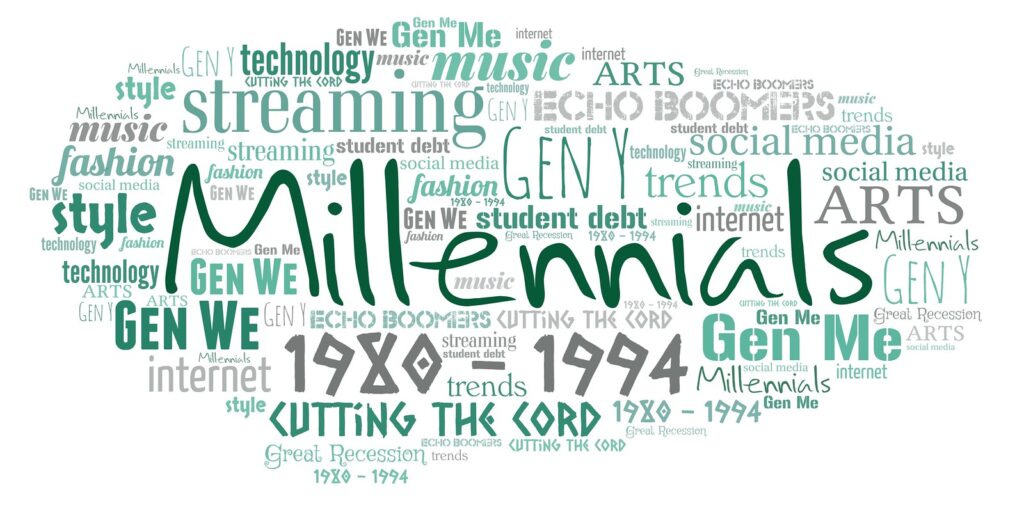There are predictions that a generational shift in the global wealth dynamic will occur in about ten years.

According to financial prophets, millennials are on the verge of inheriting a vast amount of generational wealth from their boomer parents. Interestingly, this shift may result in a major disruption to the established trends in the US and global economies.
The Great Transfer of Generational Wealth
Projections about the generational transfer of wealth were popularized in a 2024 Wealth Report by Knight Frank, a property broker.

In his financial thesis, released in the last week of February, Frank affirms that approximately $90 trillion worth of assets would fall into the hands of millennials in two decades.
Various Financial Analysts Are Giving Estimates
Frank’s estimations suggest that millennials will become the wealthiest generation in human history when the last tranche of the boomer-millennial wealth transfer is completed.

Similar reports are less optimistic about the volume of the wealth being transferred, as some estimates project that it would have a cap of $84 trillion. However, they all seem to agree on one thing.
The Wealth Transfer Is Going to Be Global
So far, all reports about the great transfer of generational wealth agree that it would inevitably happen. Likewise, each of these reports acknowledges the significance of the financial rejigging that is about to happen across the globe.

Also, they agree that the spending patterns of the super-wealthy influence the global economy.
The Different Spending Preferences of Boomers and Millennials
Invariably, the variance in financial philosophies of the two generations involved may cause some significant changes in how wealth is expended.

Thanks to the Great Wealth Transfer, millennials are projected to be five times richer by the turn of the decade. It seems a fair compensation for the many economic woes that have befallen that generation.
The Plague of Home Unaffordability
For example, millennials have been touted as the worst hit by the recent evasiveness of homeownership in the United States. A market survey by Redfin revealed that baby boomers hold twice as many large homes as millennials.

So, while millennials struggle to afford large homes appropriate for their growing families, the average empty nester has two such homes in their portfolio.
Unemployment Wreaked Its Fair Share of Havoc
Another tide millennials have had to row against is the haunting menace of unemployment. This became the elephant in the room for millennials, particularly after the major hit to the job market during the COVID-19 pandemic.

Joblessness then seems like a curse, especially when you have the baggage of student loan payments hounding your existence.
What a Time To Be Alive
In his bestseller, The Tipping Point, Malcolm Gladwell suggested that something as insignificant as one’s birth year can determine the trajectory of one’s life.

Thinking about it, millennials have had it tough, and other generations seldom empathize with their plight. Millennials have been repeatedly tagged as the lazy generation. However, organized society just seems to be asking too much of them.
The Sandwich Generation
For example, the oldest millennials must simultaneously manage funding for adult children’s education and the livelihood of aging parents. For this reason, economic analysts refer to millennials as the ‘sandwich generation.’

So, we think it should not be surprising if this generation waits earnestly to inherit the benefits of generational service.
Salivating for an Impending Inheritance
Allient Credit Union published the findings of a 2022 study that reveals how apparent the inheritance anticipation of millennials has become.

The study discovered that about half of all millennials are looking forward to inheriting as much as $350,000 from their boomer parents. Meanwhile, responses of parents from this study showed that the highest most parents are willing to leave behind is $250,000.
Are We Dealing With a Generation of Entitled Youths?
The director of Cazenove Capital, Mike Pickett, thinks results from the Allient Credit Union’s study suggest that Gen Zs and millennials are not overly responsible.

According to Pickett, “There is evidence that today’s youth blame the generations before them for the challenges that they and the planet face today.”
The Concern of Millennials About Housing
Knight Frank affirms that millennial wealth inheritors are likely to channel their riches into real estate investment. Affordable housing has been a problem in the US for some time now, to which the average millennial would relate quite well.

According to Frank, even the high-income earners among millennials still see developing a real estate portfolio as a life challenge.
Correlation of Homeownership and Financial Stability
Is it safe to say youths are property insecure? Because the study cited earlier, found that youths tend to yearn to acquire new homes, irrespective of their financial status.

The study’s data showed that 23% and 21% of female and male ultra-high-net-worth individuals (UHNWI), respectively, are looking to acquire a new home this year.
Scaling the Hurdle of Real Estate Uncertainty
An interesting aspect of the reported trend of home purchases among youths is that even UHNWIs, who are valued at over $30 million, don’t feel secure until they have acquired a home.

The trend is not limited to millennials alone, as the study suggests that Gen Z UHNWIs are also considering new home acquisitions. It’s almost as if rich youths are trying to avoid any future uncertainties regarding housing.
Home Properties From a Generational Perspective
Interestingly, as much as youths seem interested in real estate, they have different perspectives than the average boomer.

Some decades ago, boomers saw housing as an avenue to make money and gain equity. However, Pickett says, “I don’t think younger generations see residential property as a route to wealth creation in the same way as boomers of Gen X.”
Youths Prefer Rental to Outright Purchase
In addition, Pickett feels the significant change in interest rates over the years has forced youths to handle residential property differently. He suggests that Gen Zs, who are at the extreme end of the youthfulness spectrum, are more likely to rent properties.

That generation is shifting the social structure by developing services that allow you to rent anything from an Airbnb to a car ride or even a mother.
Benchmark of Wealth Stratification
Now, if you are a millennial or are close to one and wonder what it takes to join the club of the richest 1% in the US, you would need $700,000 more than last year’s benchmark.

From US financial estimates of 2023, an individual can only be considered one of the world’s richest if they have a net worth of $5.1 million.
What It Takes to Be Called Super-rich In the US
However, in 2024, an American would need a net worth of at least $5.8 million to be considered a member of the 1% elite club. That is a whopping 14% increase from the previous year’s figures.

However, the amount of wealth required to join the top 1% of elite financials varies across borders.
Wealth Benchmarks Vary Across National Borders
In Monaco, you need a net worth of $12.88 million to be considered one of the top 1%. That value is a 4% increase from Monaco’s wealth benchmark in 2023.

However, falling into the UHNWI category for your country does not guarantee a place among the richest 1% in the world.
The Ultra-Rich Are the Richest Among the Rich in the World
Indeed, a contender for the world’s richest 1% needs an average net worth of $30 million to be considered a pack member.

Interestingly, the wealth benchmark keeps going higher each year. In 2023 alone, the world’s ultra-wealthy added $150 billion to their financial portfolios thanks to returns on AI investments.

